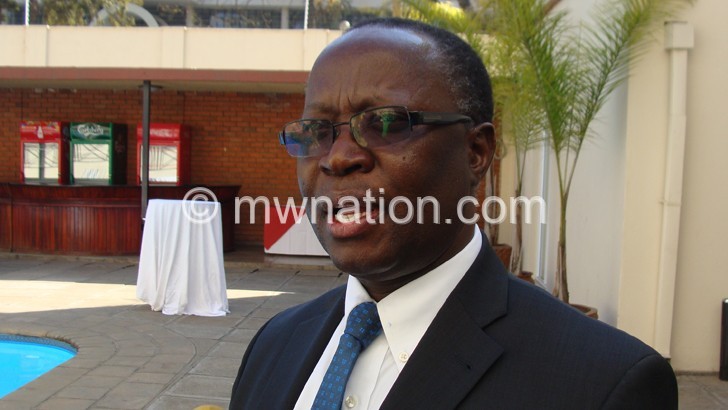Govt borrowing drops 88% to K4.3bn—RBM
Government has reduced its domestic borrowing to K4.3 billion ($5.6 million) in the first six months of 2015/16 fiscal year from K36.2 billion ($47.5 million) in the prior period in pursuit of fiscal prudence, Reserve Bank of Malawi (RBM) has said.
The 88 percent drop at a time of budget aid freeze could be good news to the private sector, which has been complaining of being crowded out on the financial market due to government’s insatiable appetite for domestic borrowing.

Equally, it could also be bad news because spending on some social services such as education and health could be affected, a Blantyre-based economist Colleen Kaluwa said yesterday.
In essence, if government borrows heavily on the domestic market, interest rates tend to rise, pushing up inflation rate which raises the cost of living.
The domestic borrowing drop comes at atime Malawi’s programme with International Monetary Fund (IMF), the Extended Credit Facility (ECF), is off-track largely due to overspending in the second half of 2014/15 fiscal year triggered by revenue and external financing shortfalls, resulting in the country missing the target on net domestic financing.
But in a monetary policy committee (MPC) statement on Friday, RBM painted a rather positive picture on domestic borrowing going forward.
“The [monetary policy] committee looked forward to this [reduced domestic borrowing] being sustained over the medium term to anchor inflation expectations,” said the committee which meet last Wednesday and Thursday chaired by Governor Charles Chuka.
Last week, Minister of Finance, Economic Planning and Development Goodall Gondwe, in an interview on the sidelines of a Public Affairs Committee (PAC) 5th All Inclusive Stakeholders Conference in Blantyre, said the central government has done a lot to contain domestic borrowing, which attracted criticism from economic players.
But Kaluwa argued that even if government stops borrowing domestically, it would not have any impact on interest and inflation rates if the bank rate is still high.
“The drop in domestic borrowing means government will have less money and this is detrimental to other social sectors such as education and health because government will not have money to finance them in view of the budget aid freeze.
“What government has to do is to reduce the bank rate, which will trigger a drop in [commercial bank] interest rates so that companies can borrow for production and employ more people,” he said.
The MPC statement said economic growth is projected to rebound to 5.6 percent in 2016 from three percent in 2015, but growth will likely be revised downwards due to dry spells reported in some parts.
The MPC has since maintained the policy rate or bank rate at 27 percent.





